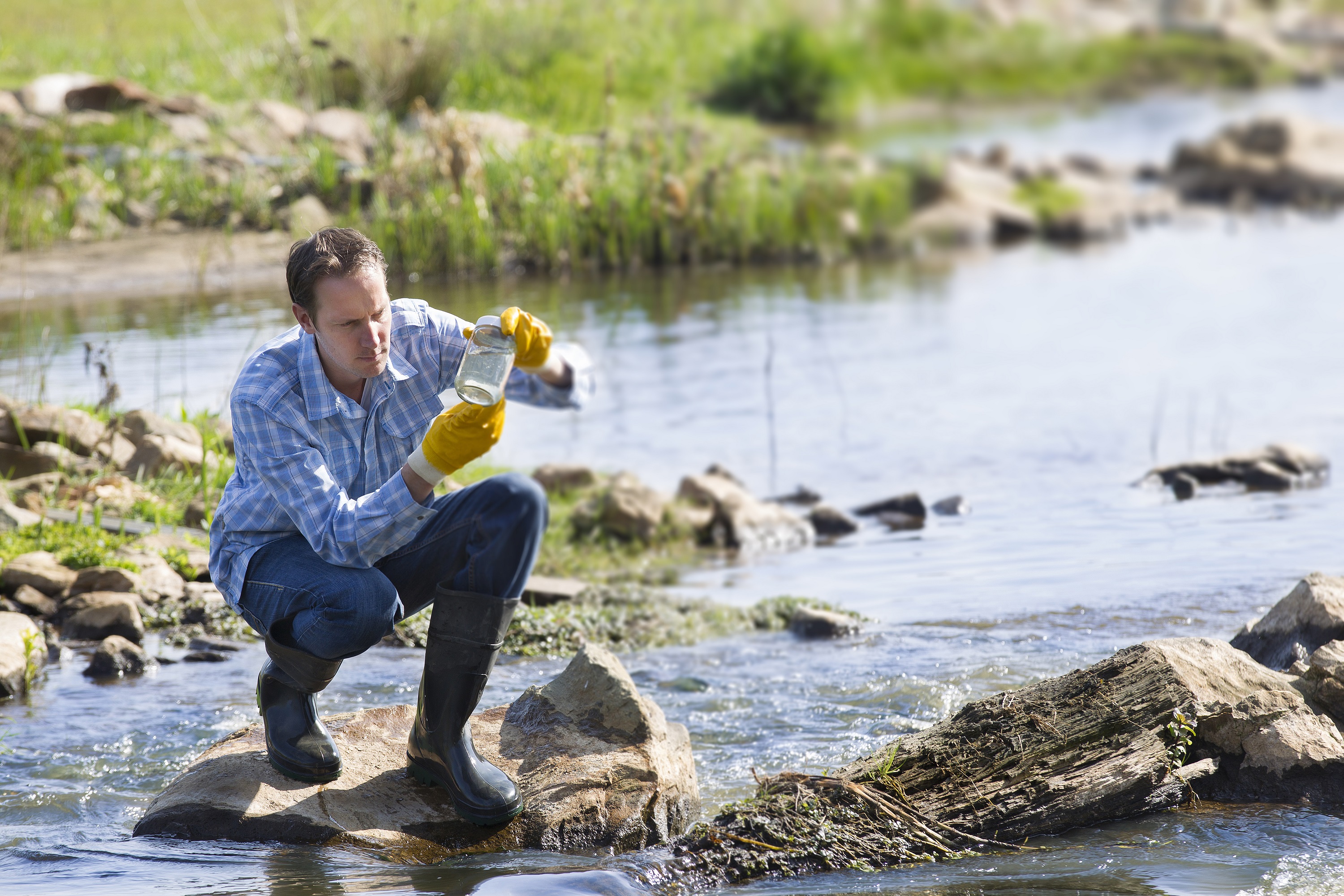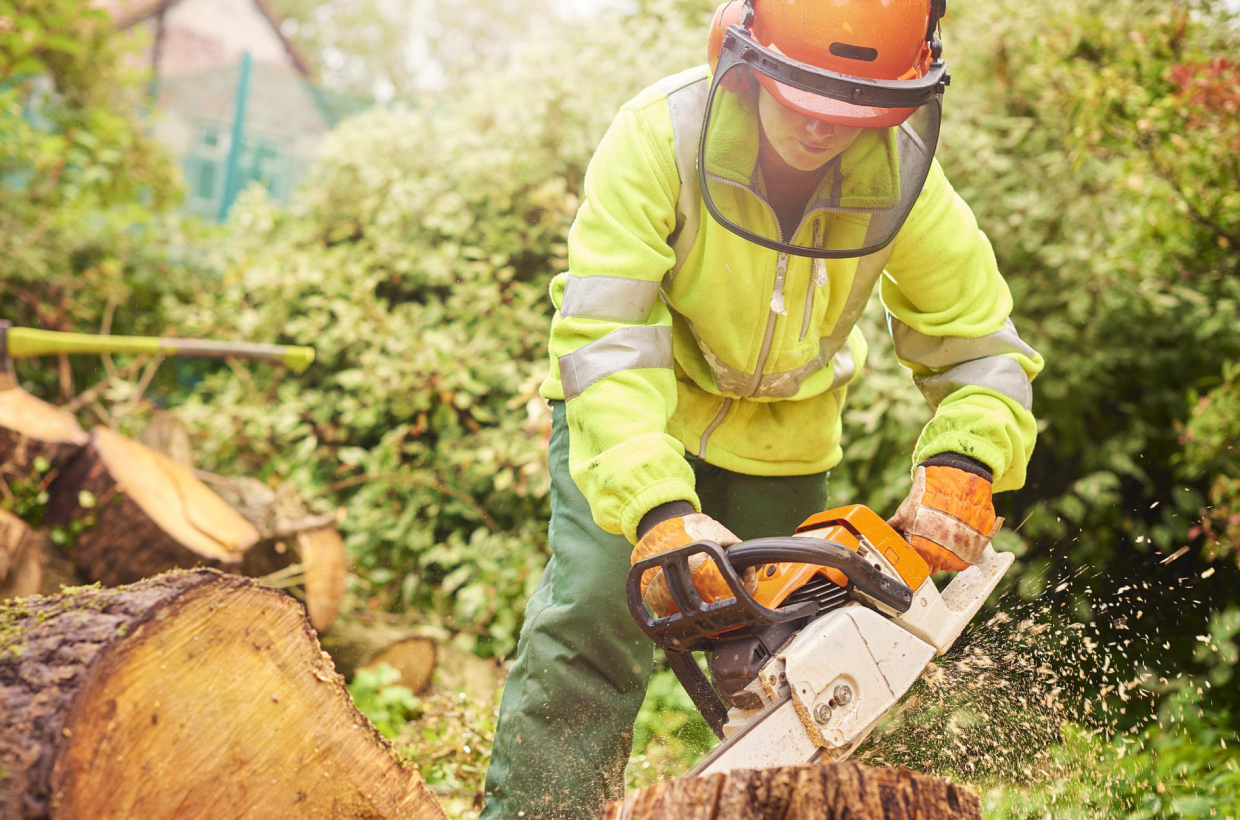
Hydrologists study rainfall, rivers and waterways to research and develop sustainable ways to manage and protect water resources. They will be involved in the monitoring, management and protection of water and will work for a range or organisations in industry, government, and academia.
Hydrologists apply scientific knowledge and mathematical principles to solve water-related problems such as quantity, quality and availability. They could also work on finding new water sources, predicting droughts or floods and reducing waste water.
Also known as: Water Engineer, Flood Engineer, Hydrology Engineer
You'll need:
numeracy skills and have knowledge and understanding of mathematical modelling
knowledge of engineering science and technology
knowledge of geography and chemistry for analysing water samples
good analytical skills
project management skills
to be thorough and pay attention to detail
excellent written and oral communication skills
good interpersonal skills
A driving licence is usually a requirement and access to a company vehicle may be provided.
37-40 hours per week. Working hours may include extra hours, but not usually shifts or weekend work. Long hours, and working under pressure, may be required in an emergency such as a flood.
Flexible and part-time working is available at some companies, where there may also be some flexibility to allow occasional working from home.
Measure and study water flows and the levels of water above and below ground
Analyse the effect of environmental changes on water flow
Investigate the causes and impact of flooding and drought
Model rainfall patterns under different climate conditions
Analyse water samples for chemicals and pollutants and advise on remedial action where necessary
Assess water use in agriculture and industry and help plan water resource management
Work on water management engineering projects
Study the effects on flows brought about by changes in land use
Assess the best ways of managing available water resource and advise stakeholders on sustainable water use
Collect data from flood events to improve forecasting and risk management
Deal with enquiries from external bodies and individuals
The working environment will be varied. You could work in an office, in a laboratory or outdoors in all weathers.
Work is typically project-based and involve liaising with colleagues, consultants and external agencies.
Training is an essential part of any job, giving you the skills and knowledge you need to do your job safely and correctly. It also helps to strengthen your current skill set and prepares you for the next stage in your career.
Apprenticeships help you build the experience and skills that employers want to see. No matter what stage you’re at, they’ll help set you up for a bright future. There are lots of ways to get involved.
You could become a senior hydrologist, managing and co-ordinating a team of researchers and hydrologists on projects. You might work as a consultant, advising government departments and businesses on sustainable water use.
You could also go into academic research and lecture in your specialist field.
Hydrologist will usually work in one of the following industries. Click below to find out more about possible career paths.
Fish, shellfish and seaweed are all ways we can help to feed our growing population, making careers in the varied world of aquaculture more important than ever before.
Aquaculture means the ‘farming’ of all kinds of animals and plants that live in the water – fish, shellfish and seaweed. Jobs in aquaculture include farming, working to restore threatened and endangered populations, habitat restoration and looking after aquariums and fish cultures. It’s a growing industry playing an important part in providing sustainable sources of protein to feed our growing population.
Scotland is Europe’s largest producer of Atlantic salmon, directly employing 2,500 people in salmon production, plus many more in the processing and supply chain. The UK also produces fish like rainbow trout, brown trout and halibut, as well as shellfish like mussels, oysters and scallops. Seaweed is also grown and harvested on a small scale – but the industry is expected to grow as we discover new ways to use seaweed in medicine, food and animal feed, and even combatting climate change.
Aquaculture is an important source of employment in the UK’s most remote, rural communities and offers career opportunities all over the world. As well as looking after animals’ health and growth, you could also specialise in science and research to make the industry more sustainable, or design new tech to reduce water pollution and feed waste.
In the Republic of Ireland, fish and shellfish are farmed in 14 Irish coastal counties; salmon, mussels and oysters are the main farmed species in the country. The industry sustains 1,833 direct jobs in remote rural areas with 80% located in the west of Ireland
Aquaculture is a varied industry with nearly 1,700 production sites across the UK
In Scotland, Atlantic salmon production dominates, employing 2,500 people directly and paying an average salary of about £38,000
Most aquaculture businesses in England, Wales and Northern Ireland are small to medium-sized enterprises (SMEs), with over 80% of businesses employing less than 5 people
There are 319 aquaculture sites in the Republic of Ireland.
In 2021, the aquaculture industry in the Republic of Ireland was valued at €175m
Want to help protect our natural environment? Passionate about helping others understand the beauty around them? Then a career in environmental conservation may be for you.
People working in environmental conservation help look after the landscapes, habitats and species of the UK and Ireland’s hugely varied rural, costal, marine and urban areas. As well as offering spaces for rest and relaxation, our landscapes and habitats are important ways we can all find out more about our environment. They help people learn about sustainable land use, biodiversity and climate change, inspiring us to work together to solve the challenges our environment faces by reinstating woodlands, conserving habitats and protecting our coastline.
Environmental conservation offers a host of exciting career options for people who want to protect the environment and help other people enjoy it in a sustainable way. Whether you want to work in your local park, a nature reserve, our beautiful countryside or work on conservation around the world, if you’re interested in science, like working outdoors or want to help find answers to the big environmental questions we face, this diverse industry may the place for you.
Over 60,000 people are employed in conservation and environmental roles in the UK, with a further 190,000 engaged as volunteers
Between 2000 and 2019, the amount of time volunteers contributed to conservation activities in the UK increased by 61%
The UK Government has committed to protect 30% of the UK’s land by 2030 to support biodiversity
The report 'Ireland’s Environment: An Integrated Assessment 2020' outlines the state of Ireland’s environment at a strategic and national level, and planned responses to current and emerging environmental issues
The popularity of angling brings lots of different opportunities to work in both wild and managed fisheries.
The industry needs enthusiastic, skilled workers to help protect and restore our rivers and fisheries and grapple with issues like climate change, pollution, overfishing, catchment management and changing freshwater habitats.
Jobs in fisheries management involve looking after wild fish stocks and their freshwater habitats, as well as working in commercial stocked fisheries.
Day-to-day tasks might include monitoring and surveying, managing fishery habitats, investigating fish health and stock levels, maintaining water quality, or doing technical project work. If you like working with the public then there are lots of opportunities to share your knowledge of sustainable fishing, or you may even get the chance to help enforce regulations to protect fishing and its habitats.
There is estimated to be over 3 million recreational anglers in the UK
Fish are a good indicator of river ecosystem health as well as supporting recreational and commercial fisheries
Recreational coarse and game fishing is a major tourism activity, providing direct financial benefits to local economies with almost all the spends going directly into the local community
It is estimated that more than 150,000 people participate in an angling activity each year in the Republic of Ireland, contributing a significant amount to tourism and recreation economies
These courses are perfect if you are starting out on your career but they are also great for people already in jobs who want to improve their skills.
To find out more about qualification levels in England please visit Regulated Qualifications Framework (RQF) for England and Northern Ireland or Framework for Higher Education Qualifications for England, Wales and Northern Ireland (FHEQ) .
To find out more about qualification levels in Northern Ireland please visit Regulated Qualifications Framework (RQF) for England and Northern Ireland or Framework for Higher Education Qualifications for England, Wales and Northern Ireland (FHEQ).
To find out more about qualification levels in the Republic of Ireland, please visit National Framework of Qualifications for Ireland (NFQIE)
To find out more about qualification levels in Scotland please visit Scottish Credit and Qualifications Framework (SCQF).
To find out more about qualification levels in Wales please visit Credit and Qualifications Framework for Wales (CQFW) or Framework for Higher Education Qualifications for England, Wales and Northern Ireland (FHEQ).
| Title | Level |
|---|
These courses are perfect if you are starting out on your career but they are also great for people already in jobs who want to improve their skills.
Whether you’re just starting out in the workplace, want to upskill or are considering changing direction, Apprenticeships are a fantastic way to build your career. Apprenticeships combine work with on-the-job training, so if you want to earn as you learn, there’s an apprenticeship out there for you – you can even start an apprenticeship if you already have a degree.
Work, earn and learn – no matter where you are in your career, an apprenticeship can set you up for a bright future.
Let’s get started!
Want to take on an apprentice? Employers start here.
An apprenticeship is a unique blend of work experience and study to help build the skills and knowledge you need for your career. Apprentices are employees – they have a contract, are paid and get the same benefits as everyone else. But the difference between an apprenticeship and a normal job is that apprentices are regularly released from work for training. Sometimes that’s a day a week, sometimes it’s for a longer block – it all depends on the job and the apprenticeship.
Apprentices work for all kinds of people at all kinds of stages in their lives. Most apprentices fall into one of three categories:
Previously restricted to school leavers and young people, apprenticeships are now a dynamic way of retraining people of all ages - there’s no upper age limit. The minimum age to become an apprentice is 16 and candidates can’t be in full-time education.
Apprenticeships offer a unique combination of paid work and study. They’re an exciting option for anyone who wants to gain experience, upskill or change career while working.
They offer a chance to work, learn and earn:


Interested in becoming an apprentice? Search for current opportunities and apply here.
Find your apprenticeship
You can also check vacancies on employer websites or get in touch with your local careers service.
What’s it like to work, earn and learn? Find out what apprentice life is really like.
Explore apprenticeship stories
British Hydrological Society (BHS)
Find out more
Seafish
Find out more
Salmon Scotland
Find out more
Sustainable Aquaculture Innovation Centre (SAIC)
Find out more
Institute of Aquaculture – University of Stirling
Find out more
Association of Scottish Shellfish Growers
Find out more
Shellfish Association of Great Britain
Find out more
Scottish Seaweed Industry Association
Find out more
British Trout Association (BTA)
Find out more
Aquaculture Industry Wales
Find out more
Northern Ireland Environment Agency (NIEA)
Find out more
Natural Resources Wales
Find out more
Natural England
Find out more
Countryside Management Association
Find out more
Historic England
Find out more
National Trust
Find out more
Scottish Environment Protection Agency (SEPA)
Find out more
Historic Environment Scotland (HES)
Find out more
National Trust for Scotland (NTS)
Find out more
NatureScot
Find out more
Royal Society for the Protection of Birds (RSPB)
Find out more
National Parks UK
Find out more
The Wildlife Trusts
Find out more
Institute of Fisheries Management
Find out more
Canal & River Trust
Find out more
British Trout Association
Find out more
Fisheries Management Scotland
Find out more
The Angling Trust
Find out more
Ulster Angling Federation
Find out more
Thinking about your finances is important when you're looking at courses and training - different types of funding support is available depending on what type of course you're interested in and where you are located. We recommend you contact the training provider for more information on course costs and financing, but here are some links to connect you to support available:
Skills Hub Scotland is an online skill sharing marketplace creating new opportunities to learn and share skills. Wherever you are located - if you have a skill to share, or a skill to learn, Skills Hub Scotland can help.
Initially founded as a response to the Scottish Government’s CivTech 5 programme in 2020 and aiming to offer a platform for those in rural or remote locations, Skills Hub Scotland has been developed into an important sectoral resource. If you have a skill to share with others or are a training provider, list your workshop or course (all skills from all sectors are welcome). If you are a learner, use Skills Hub Scotland to search for and book a course!
STEM is an approach to learning and development that incorporates the areas of science, technology, engineering and mathematics. Learning in STEM connects to Education for Sustainable Development/Learning for Sustainability and the Sustainable Development Goals – this helps learners to understand that STEM plays a vital role in finding solutions to real world issues or challenges such as protecting biodiversity and tackling climate change. There are multiple pathways into a land-based STEM career including apprenticeships, further and higher education. This means that a career in STEM is open to everyone!
STEM Learning is the largest provider of STEM education and careers support in the UK. Their STEM Ambassadors programme sees volunteers representing a vast range of STEM-related jobs work with young people to bring STEM subjects alive through real life experiences. They help to open the doors to a world of opportunities and possibilities which come from pursuing STEM subjects and careers. To become a STEM Ambassador, you can register via the STEM Learning website: https://www.stem.org.uk/stem-ambassadors/join-stem-ambassador-programme
Lantra have worked in collaboration with STEM Ambassadors in Scotland to create two specific UK-wide Ambassadors schemes - Forestry and Aquaculture. Through these schemes, we want to make sure that those working in forestry and aquaculture have the support materials they need to take part in STEM activities. To find out more and register for the schemes, please follow the links below:
Smart Futures helps young people in Ireland discover the STEM subjects and careers that might be right for them. Co-ordinated and managed by Science Foundation Ireland, their programme allows young people to connect with people that are working in STEM, the organisations they’re working in and what their interests and skills are.
Why not take a look at the Industries Explorer as an introduction to the different areas you could work in.
If we can support you with any specific information, please click the button below to get in touch.